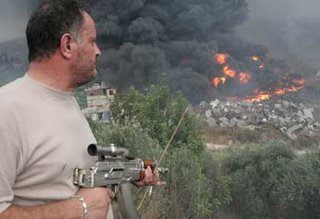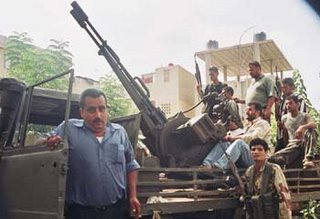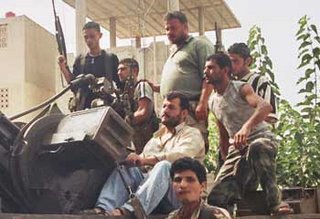I knew that this was in the wind. It has been a matter of debate (off and on) here in NZ over the past year or so. There was no firm indication in recent times that Tonga would sign to the WTO, nor any reminder that the deadline was as close as Monday (31 July).
It is an interesting talking point because it gives a concrete example of the cross talk and propaganda that accompanies the debate on world trade, the WTO, and free trade in general.
On the Monday following my last post on the topic, Granny Herald had two op-ed features on the subject of the failure of the Doha round – one expressing dismay at the failure the other equally joyous. One took the attitude that the opportunity for poor countries to trade into greater wealth had been lost the other that the poor countries would continue to be protected from the rape and pillage by the rich nations. ( I can’t link to them as they as both subscription articles).
That discussion piqued my interest in the “anti-trade” argument, and a few (admittedly half-hearted) attempts to dig out some reasoned and meaningful debate discovered great quantities of heat and smoke on both sides and very little that could be said to be factual. The Tonga example has given the opportunity to look at a specific “small third world economy” and its presentation by both sides of the debate.
Probably the leader (one of the leaders) in the anti-WTO side is Oxfam. A worthy NGO with a fairly long and respected history in the fields of humanitarian relief and the development of poor nations.
The other is the response of the Tongan Government to Oxfam’s opposition.
There is another view – that of NZ itself which has taken a long and fairly hard road through some tough economic times to the point where this country is likely to be one of the very few that comply in most respects with WTO requirements for open and unrestricted trade. No, NZ still has some way to go. There are elements which have not met with WTO approval in recent times a major one of which is the genesis of this series of posts on “free trade”.
Back last December, Oxfam published
this report which opens with this statement –
The tiny island Kingdom of Tonga in the South Pacific
is about to make history, by joining the WTO on what
are arguably the worst terms ever offered to any country.
The appalling terms of Tonga’s accession package
show that nothing has changed in the way the world’s
smallest and most vulnerable economies are treated
as they seek to join the WTO. It is a further demonstration
that the fine words of the Doha Development Agenda
mean nothing when pitted against the commercial
interests of the world’s richest countries.
The basis of
Oxfam’s opposition is in large part based upon the Tongan economy. Like all small Pacific economies, it is reliant upon fish exports, small scale farming exports, tourism, remittances from ex-patriots, and international aid primarily from Australia and NZ. Annual income per head is a bit over USD2000 (CIA Factbook). It is not a tropical paradise. I have visited Tonga twice. Outside of the tourist “spots” it is definitely “poor world”, with the corresponding (glaring) examples of wealth and poverty. (I occasion had to lie to a taxi driver / guide who was taking us around the main island Tongatapu. We had stopped to admire the Crown Prince’s residence – no photographs allowed – and then continued. I noted as we passed through a small village a “residence” on the other side of the road. I grabbed a photo of it as we returned a while later. The guide was most upset that I might have taken a photo of it, “We are not proud of people who live like that”.)
“The terms of Tonga’s accession package are appalling,” said Oxfam’s Phil Bloomer. “This is one of the world’s smallest and most vulnerable economies, and the extortionist demands being made on it should have no place in a “development round”. Apparently, the rhetoric of development means nothing at the WTO when pitted against the commercial interests of the world’s richest countries.”
As the price of joining the WTO, the remote, impoverished nation (population 100,000) will be forced to slash the tariffs on which it depends to pay for vital public services such as health and education.
“Tonga will have to fix its tariffs at levels lower than any other country in the history of the WTO, with the sole exception of Armenia,” said Bloomer. Tonga will be allowed tariffs of no more than 20% on any product. In comparison, the US applies a 350% tariff on beef imports, and the EU applies an equivalent tariff of over 300% to block sugar imports. Such low tariffs threaten to wipe out Tonga’s vulnerable farmers and small businesses.
That is emotive stuff, and if true (I know that some
parts of it are very true) then both WTO and Tongan government have much to answer for.
This is the response from the Tongan government on the point.
But the Tongans say that this binding rate is in line with government policy of reducing import tariffs, "in order to reduce the costs of imports to make them affordable to the general public particularly the poorer sections of the community. The government of Tonga has been undertaking an economic reform programme over the past five years, and one of the primary aims of this economic reform is to reduce where possible the costs of living..., with emphasis on areas directly impacting on the poor and on investment, and to reduce the cost of doing business."
They said that at the moment much of Tonga’s consumption, food and non-food items, is imported and the tariffs imposed on those imports are high relative to the income of most of the population who need to import basic foodstuffs such as milk and meat, because little is being produced locally.
Meanwhile, import tariffs on farm vehicles is 45%, plus other taxes raising the total to at least 60% to be added to the landed cost, which the farmer has to pay and, "is surely a disincentive to farmers, fishermen and other investors."
Hands up those who trust a government. In this instance and because the statements are so easy to check, I am fairly comfortable with the veracity of that statement. It also fits with the news that has been coming out of Tonga over a period of time.
So, who do we believe at the moment? Is it the Tongan government, that they are doing the right thing by their people? Or do we believe the NGO, the non-partisan objective promoter of the rights of the poor?
Looking at the comments Oxfam has made about NZ’s economy, our entry to WTO, and the “recent” economic changes made in response to the urgings of WTO, World Bank, and OECD, I have to say that their “analysis” is over the top and very emotive.
NZ started out the process with extensive and complex systems of tariffs, subsidies, and sector protections in place. Some of the tariffs and import duties might have totaled 50% or more of the import cost. Most of the import duties are gone. The highest now 5%, and due for reduction to 3%. All internal industry subsidies went some years back, including all of the agricultural subsidies. There was hardship for some, there are some (like clothing and footwear manufacturers) who have long since departed the economy. But we are not yet bankrupt, like some predicted would happen within five years, or the next five years or… like Revelations there is always the next historical landmark, unlike Revelations though the believers now are silent.
Note, however that I do NOT say that Oxfam’s comments are without validity. There are instances where “following the path” – NZ and Argentina set out together and parted ways after a short distance, to the relief of NZ and the chagrin of Argentina – has left NZ in some very tight holes indeed. Examples –
Sale of the rail system from government ownership and control to private and deregulated ownership, combined with parallel removal of long distance carriage restrictions that acted as internal “tariffs”. It is has for some years been cheaper to travel Auckland – Wellington by air than it is by train. The rail passenger service ceases September 30.
Sale of the state owned and operated Air New Zealand. Bailed out by the government to the tune of $1billion within five years. Argument about the viability of a “small”operator vs bad management. Large part of the problem stems from NZ adopting open skies policy, since has limited internal carriage by other international operators.
Sale of the telephone system on the open market. Profiteering and monopolistic practices have restricted new market entrants, long protracted legal wrangles put broadband back five years.
Closure of the mental health system in favour of “community care” has led to totally inadequate facilities for the care and rehabilitation of the severely mentally handicapped and those requiring 24 hour care and control.
Privatisation of public broadcast media has been a relative success.
Attempts to privatize other “public goods” such as roading, water supply, local government services have led to rather crippling failures. One instance in the local government services area is the cost of what is known here as the “leaky building syndrome”. The failure of policy, regulatory and operational functions to properly handle “new building techniques” has left the nation with a repair bill estimated in the hundreds of millions and climbing.
All of those instances came directly from World Bank and OECD urgings to remove government from the economy – by any means possible.
They are not always “right”. Neither side.
Congratulations, Tonga, on having the courage to take this step on. Kia kaha.









